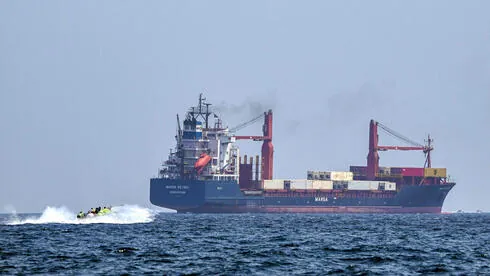
Iran's Threat to Close the Strait of Hormuz Exposed: A Sign of Weakness?
2025-07-01
Author: Wai
The Diminished Impact of Iran's Threats
In the midst of the recent conflict between Iran and Israel, experts raised alarms about the possibility of Iran shutting down the Strait of Hormuz, a crucial channel for global oil trade. Despite threatening to close this vital waterway, the Iranian regime's warnings seemed largely ineffective as the strait remained operational and global markets shrugged off the threats.
Expert Insights on Iran's Isolation
Lisa Daftari, a Middle East analyst, emphasized that the lack of international support for Iran highlighted its growing isolation. She remarked on the Chinese leader's nonchalant response to the threats, which essentially boiled down to a simple 'don't.' Daftari argued that even Iran's traditional allies, such as China and Russia, refrained from stepping in, showcasing the regime's diminishing authority.
Proxy Warfare: Iran's Double-Edged Sword
Since its inception in 1979, the Islamic Republic has utilized proxy forces to extend its influence and engage in confrontation with the U.S. and Israel. Daftari noted that Iran's strategy involves maintaining these proxies not only to project power offensively but also to shield its territory from conflict. However, she stated that Israel's recent military actions have significantly weakened these proxies, bringing the battles closer to Iranian borders.
What Lies Ahead for Iran?
While the recent war represents a notable moment in the ongoing conflict, Daftari warns that the threat of Iranian nuclear capabilities persists. She asserts that the regime’s ambition for nuclear weapons is fundamentally tied to its survival, emphasizing that Israel and the U.S. must remain vigilant.
Growing Frustration with Media Portrayals
Daftari expressed discontent with media coverage that downplays the strategic importance of the operations against Iran. She criticized detractors for failing to recognize the significance of U.S. involvement as pivotal to national security rather than mere military action.
Potential Shifts in Middle East Relations
With the conflict drawing attention, there’s speculation regarding the future of diplomatic relations in the region. Israeli Prime Minister Netanyahu hinted that the end of hostilities could pave the way for new countries to join the Abraham Accords, a sentiment echoed by Daftari, who acknowledges the changing dynamics.
Hope for Iranian Change
Among the Iranian diaspora, there are glimmers of hope for regime change. Many celebrated the idea that weakening the Iranian regime could lead to a brighter future. Daftari recounted instances where pro-monarchy Iranians openly supported Israel in the hopes of diminishing the regime's grasp on power.
The Regime's Crackdown on Dissent
Meanwhile, those still inside Iran face severe repression. Daftari highlighted the regime's brutal crackdown on dissent, emphasizing the precarious situation for minority communities, including the Jewish population, which has faced persecution and hostility.
Final Thoughts and Future Possibilities
Daftari concluded that Iran's internal repression and weakened global standing might set the stage for significant shifts in the Middle East, emphasizing the hope for eventual peace agreements with the Iranian people's backing. She believes a future comprising friendly relations between Israel and Iran could arise if current obstacles are removed.


 Brasil (PT)
Brasil (PT)
 Canada (EN)
Canada (EN)
 Chile (ES)
Chile (ES)
 Česko (CS)
Česko (CS)
 대한민국 (KO)
대한민국 (KO)
 España (ES)
España (ES)
 France (FR)
France (FR)
 Hong Kong (EN)
Hong Kong (EN)
 Italia (IT)
Italia (IT)
 日本 (JA)
日本 (JA)
 Magyarország (HU)
Magyarország (HU)
 Norge (NO)
Norge (NO)
 Polska (PL)
Polska (PL)
 Schweiz (DE)
Schweiz (DE)
 Singapore (EN)
Singapore (EN)
 Sverige (SV)
Sverige (SV)
 Suomi (FI)
Suomi (FI)
 Türkiye (TR)
Türkiye (TR)
 الإمارات العربية المتحدة (AR)
الإمارات العربية المتحدة (AR)